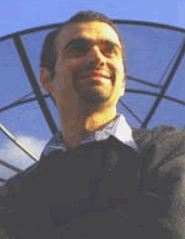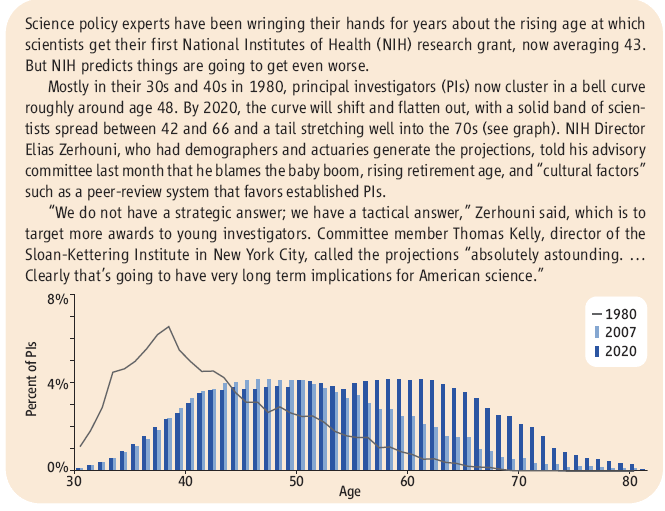|
|
|
|
|
|
|
News & Views item - October 2008 |
![]() Bryan Gaensler Comments on Shortcomings in the Awarding of Governmental Research
Grants. (October 6, 2008)
Bryan Gaensler Comments on Shortcomings in the Awarding of Governmental Research
Grants. (October 6, 2008)
 The
1999 Young Australian of the Year, Bryan Gaensler, said in his Australia Day
Address: "Aside from all these arguments as to why science is important, I would
like to think Australia is a place which is about more than economic growth and
our standard of living. Australia is also a country which values culture, beauty
and diversity. And so just as we treasure and appreciate great art, music and
poetry, we should surely value science even aside from all the benefits and
applications which it offers, but simply for the sense of wonder and insight
that it gives us."
The
1999 Young Australian of the Year, Bryan Gaensler, said in his Australia Day
Address: "Aside from all these arguments as to why science is important, I would
like to think Australia is a place which is about more than economic growth and
our standard of living. Australia is also a country which values culture, beauty
and diversity. And so just as we treasure and appreciate great art, music and
poetry, we should surely value science even aside from all the benefits and
applications which it offers, but simply for the sense of wonder and insight
that it gives us."
Since then Professor Gaensler has held the positions of Hubble Fellow at the Massachusetts Institute of Technology, Clay Fellow at the Smithsonian Institute and Associate Professor of Astronomy at Harvard University. In 2006 he returned to Australia as a Federation Fellow to take up an appointment at The University of Sydney as professor of physics.
In the October 2008 issue of
Australasian Science Professor Gaensler contributed the
conScience column "Reward
Ideas, Not CVs"![]() .
And his admonishment is simple and unequivocal: "The way scientific research is
funded in Australia’s universities puts an excessive emphasis on guaranteed
results at the expense of adventurous ideas and major breakthroughs."
.
And his admonishment is simple and unequivocal: "The way scientific research is
funded in Australia’s universities puts an excessive emphasis on guaranteed
results at the expense of adventurous ideas and major breakthroughs."
He goes on to say:
Unfortunately, Australia’s potential for discovery and innovation is being held back by a system that encourages our scientists to play it safe, to follow traditional paths in their research and to steer clear of avant-garde experiments that might lead to spectacular breakthroughs.
[The Australian Research Council's] flagship “Discovery” program, the dominant criterion is the applicant’s track record, worth a massive 40% of a proposal’s overall grade. A further 30% is awarded for significance and 10% for national benefit, but the project itself is worth only 20%.
We unquestionably need a robust assessment process as part of the ARC system to ensure that federal funding is spent responsibly. But there also needs to be a balance. We need to make better provision for the risky ideas that sometimes might not deliver on their promises but that also just might change the world.
In January this year TFW wrote in part:
is it in the best interest of the country to effectively stifle the up
coming generation? This is of particular concern when prospects of support are
seen to be better overseas.
Australia's National Health and Medical Research Council is in consultation with
the NIH with a view to improving how it implements its peer review process for
research grants. Surely this ought to be the starting point for the Minister for
Innovation, Industry, Science and Research to develop a sound and forward
looking approach for the distribution of research funds. The metrics based
approach with its potential for heavy reliance on citation indices holds the
potential for what might be termed a cheap and nasty approach.
And included the following graphic which is self-explanatory.

Surely the matter of awarding publicly funded research grants, and particularly for basic research, is a matter for urgent consideration by the incoming Chief Scientist, and perhaps Professor Sackett (52) might like to stop by Sydney University and chat with fellow astronomer, the 30s-something Bryan Gaensler.